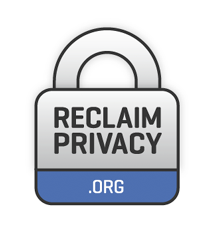Home | Solutions Blog | John Sileo
Posts tagged "John Sileo"
Medical records are one-stop shopping for identity thieves. There is no need to slowly gather bits and pieces of someone’s personal information – it’s all packaged together: Social Security number, name, address, phone number, even payment accounts. Crooks have received everything from medication to a liver transplant using a stolen identity. And that’s only the tip of the iceberg! More than just medical treatment is at stake. Once a thief’s medical information is entered into your records, it’s extremely difficult to get rid of that information. It’s conceivable, for example, that at a later date, you’ll need a Type A blood transfusion but be given the thief’s Type B with dire consequences.
Posted in Identity Theft Prevention by Identity Theft Speaker John Sileo.
Tags: Fraud, identity theft expert, John Sileo, Larry Ponemon, medical identity theft, Privacy, Social Engineering Speaker
 Quoted from the original CSO Online story:
Quoted from the original CSO Online story:
Social engineering stories: The sequel
Two more social engineering scenarios demonstrate how hackers still use basic techniques to gain unauthorized access, and what you can do to stop them
By Joan Goodchild, Senior Editor
May 27, 2010 —
John Sileo, an identity theft expert who trains on repelling social engineering, knows from first-hand experience what it’s like to be a victim. Sileo has had his identity stolen—twice. And both instances resulted in catastrophic consequences.
The first crime took place when Sileo’s information was obtained from someone who had gained access to it out of the trash (yes, dumpster diving still works). She bought a house using his financial information and eventually declared bankruptcy.
“That was mild,” said Sileo, who then got hit again when his business partner used his information to embezzle money from clients. Sileo spent several years, and was bankrupt, fighting criminal charges.
Posted in Fraud Detection & Prevention, Identity Theft Prevention by Identity Theft Speaker John Sileo.
Tags: CSO Online, Fraud, Fraud Training, Fraud Training Expert, Fraud Workshops, John Sileo, Scams, social engineering, social engineering expert
FTC Red Flags Rule Goes into Effect June 1st, 2010
The FTC will begin enforcing the Red Flag Rule on June 1st, which states that certain businesses and creditors must help fight identity theft as well as create an identity theft prevention plan. This applies to a very broad class of businesses: those defined as “financial institutions” and those that extend any type of credit to their customers.
In other words, if you don’t receive cash the moment you deliver your product or service to your customer, your business most likely falls under the umbrella of the Red Flags Rule. If you do any billing after the fact (i.e., accounts receivable), you are considered a creditor, and therefore in the group of companies governed by Red Flags.
This includes:
- Any Business that Extends Credit
- All Banks
- Most Brokerage Firms
- Credit Card Companies
Posted in Fraud Detection & Prevention, Identity Theft Prevention, Video Tips by Identity Theft Speaker John Sileo.
Tags: Boot Camp, Business Identity Theft, Business Survival, Compliance, FTC, Identity Theft Prevention, John Sileo, Privacy Survival, Red Flag, Red Flags, Red Flags Rule
This quote by Daniel Lyons in Newsweek establishes exactly why Facebook drags it’s feet on privacy. Why write more when he has summarized it so eloquently (emphasis mine)?
The most important thing to understand about Facebook is that you are not Facebook’s customer, you are its inventory. You are the product Facebook is selling. Facebook’s real customers are advertisers. You, as a Facebook member, are useful only because you can be packaged up and sold to advertisers. The more information Facebook can get from you, the more you are worth.
Read the full Newsweek article: Who Needs Friends Like Facebook?.
Order the Facebook Safety Survival Guide to make sure you and your children are protected online.
Posted in Online Privacy by Identity Theft Speaker John Sileo.
Tags: Daniel Lyons, facebook privacy, Facebook Safety, John Sileo, Newsweek
 Facebook faced major backlash last month after they implemented a new tool that linked your interests to sites across the Internet and allowed third parties access to your information unless you specifically deny such access. As we mentioned in yesterday’s blog about an easy way to configure your privacy settings in Facebook, there are 50 different settings with more than 170 options!
Facebook faced major backlash last month after they implemented a new tool that linked your interests to sites across the Internet and allowed third parties access to your information unless you specifically deny such access. As we mentioned in yesterday’s blog about an easy way to configure your privacy settings in Facebook, there are 50 different settings with more than 170 options!
Many Facebook users have been extremely vocal about their frustrations, even organizing efforts to quit the quickly growing site. According to CNN Facebook will be reversing these changes today to make them simpler for the user with the intent of increasing user privacy.
“I can confirm that our new, simpler user controls will begin rolling out tomorrow. I can’t say more yet,” Facebook spokesman Andrew Noyes told CNN in an e-mail Tuesday.
Posted in Identity Theft Prevention, Online Privacy by Identity Theft Speaker John Sileo.
Tags: CNN, Facebook, Facebook Changes, John Sileo, Mark Zuckerberg, Online/Social Media Privacy, Privacy Settings, social networking
We need a Facebook Privacy Tool that isn’t written by Facebook. Currently, to effectively manage your privacy on Facebook, you’ve got to alter 50 settings with more than 170 options.
Maybe that is why Facebook’s CEO Mark Zuckerberg confessed on Monday that the quickly expanding social network had “missed the mark” when it comes to its complex privacy controls — and pledged to do better.
Can you imagine keeping up with all your Privacy Settings every time Facbook makes a change? Until Facebook figures it out, a new Privacy Awareness Group—ReclaimPrivacy.org, has developed a tool that scans your Facebook privacy settings to tell you how secure your personal information is. The tool comes in the form of a bookmark for your web browser. Start by dragging the bookmark from the website above to your bookmarks/favorites. Then, log into your Facebook account, go to the privacy settings screen and click on the bookmark. After the tool scans your privacy settings in six areas—Facebook’s Instant Personalization feature; your personal data; contact information; friends, tags, and connections; what your friends can share about you; and whether applications can leak your personal data—it tells you what areas are secure and where you may want to consider tweaking your settings.
Posted in Identity Theft Prevention, Online Privacy by Identity Theft Speaker John Sileo.
Tags: Facebook, Facebook Privacy Tool, Identity Theft Prevention, John Sileo, Mark Zuckerberg, Privacy, Privacy Settings, ReclaimPrivacy.org, Social Networking Expert
Your business-class photocopier is essentially a computer that can be hacked. It has a hard drive and saves an image of everything you copy. Customer data, invoices, employee records, intellectual capital, personal identity. This is not new information – we’ve been writing about it for years. But the press is finally beginning to pay attention because they have seen for themselves the type of data that can be extracted from corporations by purchasing their used copiers (see the excellent CBS video to the left).
If you’ve attended on of my Privacy Survival Boot Camps or have seen me speak for your organization, you will recognize the spy terminology used below that I use to train on effectively evaluating privacy risks. Here is a brief primer to help you get started on protecting your business from this threat:
Posted in Burning Questions (Video), Fraud Detection & Prevention, Identity Theft Prevention, Video Tips by Identity Theft Speaker John Sileo.
Tags: Hard Drives, Identity Theft Prevention, Information Privacy, Information Privacy Professional, John Sileo, Photo Copier, Photo Copiers, Photocopier, Photocopier Identity Theft, Photocopiers
The story about the Harvard student who fraudulently gained access into Harvard University is an excellent lesson in repelling fraud. Watching the video to the left, you will be struck by how many opportunities there were to catch him in the act of lying. But it didn’t happen for a long time. The underlying reason he didn’t get caught is the same for prestigious universities like Harvard, Fortune 500 Companies and small businesses alike:
No one verified his claims (until recently). Verification is a learned skill that is under-utilized and under-
trained in corporate America.
Posted in Identity Theft Prevention by Identity Theft Speaker John Sileo.
Tags: Adam Wheeler, Admissions, Fraud Training, Harvard, Identity Theft Prevention, Identity Theft Speaker, John Sileo, Scam
Facebook has announced a new security feature that focuses on keeping users’ information safe from hackers attempting to gain access into your account.
The feature was announced last Thursday, and is similar to how secured banking sites work — they only let you access the site from approved computers. If you are attempting to log onto your Facebook account from an unknown computer, device, or location, Facebook will notify you via email and lock down your account in case it is under attack. To regain access, you will have to follow the link in the email which will lead you through a security check to verify your identity. They will ask you a few security questions and have you acknowledge that it was in fact YOU (or if it wasn’t you, then you notify Facebook at this point) trying to access your account.
Posted in Identity Theft Prevention, Online Privacy by Identity Theft Speaker John Sileo.
Tags: CNN, Facebook, identity theft expert, Information Control, John Sileo, Privacy, Social Networking Speaker



















